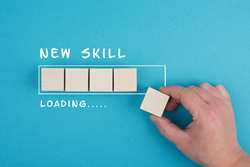
Enhancing Skill Assimilation in Higher Education: Formative Evaluation of a Pilot Program
The Edmond de Rothschild Center for Connecting Higher Education and Employment is spearheading a pilot initiative aimed at developing and promoting an institutional framework for the integration of occupational qualifications and skills within disciplinary study courses. In collaboration with two higher education institutions, this pilot will involve updating four selected courses to incorporate pedagogies that support the acquisition of skills and qualifications.

Assessing the Effectiveness, Economic Benefits, and Social & Economic Impact of Obesity Prevention and Reduction Reforms and Programs: A Comprehensive Review in Israel and Worldwide
This study, led by Neaman Institute and the Number Zone company headed by Nadav Caspi, investigates the intricate relationship between obesity prevention, socio-economic leadership, and gap reduction. Through an extensive examination of reforms, regulations, and intervention programs in four selected countries (England, Australia, Canada, and Denmark), chosen after a thorough literature review and in collaboration with experts from Joint-Elka and the Ministry of Health, the study aims to assess the viability of investing in community and national-level interventions for obesity prevention. Furthermore, a comprehensive evaluation of selected intervention programs from Israel and other countries was conducted, focusing on measuring their effectiveness through a rigorous ROI analysis.
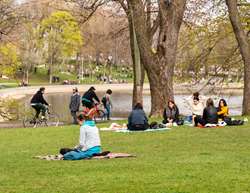
Well-being benefits by contacting with nature
The studies of the SNI in this field examine the contribution of nature to the mental and physical health of the residents of Israel. The studies examine the beneficial effect of exposure to nature, including staying in nature outside the city, visiting urban nature sites such as parks and urban gardens, and even viewing nature through windows or simply watching nature images. The studies examine the benefits that nature affects different populations, such as ethnic sectors, gender and different ages, and provide recommendations for measures that can be taken to increase the resilience of these populations, through exposure to nature and increasing awareness of its contribution to decision makers, executive bodies, health professionals, culture and sports, and among the general population.

‘Common Ground’: Agreed Road Map for Long-Term National Paradigms
A Strategic thinking process for the state of Israel is presented. The preliminary stage is based on interviews of 32 prominent Israelis, from diverse walks of life, we find a wide common ground in considering the ‘Declaration of Independence’ (1948) to be Israel’s ‘organizing principle’ for the coming decades. Updating the ‘rules of the game’ and broad sense of security are the needed enablers. The project leads to a process of re-consideration of paradigms in education, Jewish-Democratic state, moral market economy, ‘Mamlakhtiut’ - statehood, Israel in the Middle East, and foreign affairs.

The aspects of establishing an academic center in the city of Petah Tikva
Examining different possible models for a new academic center in the city of Petah Tikva, including the school for outstanding and gifted students, or any alternative to such a center. Using several methodologies such as interviews and literature review, three possible models were devised and presented to the management of the Petah Tikva Municipality to select the best model suitable for the urban ecosystem: Lifelong Learning center, novel applied academic center, and a combination of a Lifelong Learning Center and an existing academic center.
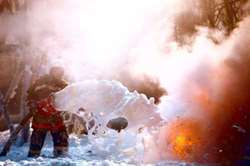
Fire Suppression Foams and Alternatives
Firefighting foam is the most commonly used method to suppress fires after extinguishing with water. As part of the current project, a literature survey was conducted on the various types of firefighting foams and its substitutes.
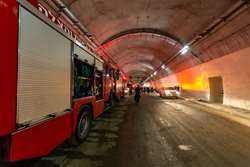
Underground Infrastructures: Technologies and Means Survey
As part of the project, a survey of the capabilities and means used in a case of fire emergency in underground structures will be conducted. By reviewing the open sources information, a comparison with various countries will be made in the field of existing standards and measures and future technologies.

100 Days Project
The aim of the “100 Days Project” is to formulate a socio-economic agenda that proposes solutions to some of the main issues the Israeli community faces and that will serve as a road map for the first 100 days of the next government.

Affordable Housing: Developing Policy, Awareness and Pilot Projects
Housing affordability, or the lack of it, was the issue that sparked the mass social protests of Summer 2011, with tent camps in tens of cities and hundreds of thousands of demonstrators. This project works to develop new policies to promote affordable housing and social mixed neighborhoods in Israel. We draw on the experiences of other developed countries in creating new tools of regulatory planning and financial innovations.

Stratigic Development of National Infrastructure
This project deals with the design of a long term strategy for development of physical infrastructure in the State of Israel. The project is based on the findings of the National Infrastructure in Israel - 2028 study, but with an expanded, longer-term perspective.

The Industrial Excellence Center
The Industrial Excellence Center was established in 2011 and its objective is to promote a national industrial policy. The Center helps formulate and promote a proactive policy of industrial excellence, intended to sustain a balanced and high-quality national industry that maintains a healthy lifecycle, which is tested by its global competitive advantage and quality employment of all sectors of society. The Industrial Excellence Center is also part of the Israel 2028 Vision.
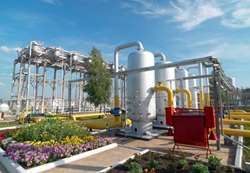
National Policy on the Use of Natural Gas
The application of natural gas in industry requires that the dilemma concerning its transportation in Israel be studied. According to the solution that was selected, a government company transports the gas to the distribution centers and to the largest consumers, but transport to smaller industries is left to private enterprises. We believe that this leads to small and medium industries having an unequal opportunity to realize the benefits of natural gas, and that the present design will mainly affect classic industries, whose energy costs constitute a significant part of their expenses, and whose profits do not allow them to be competitive without replacing liquid fuel with natural gas.
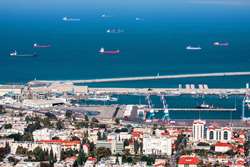
Haifa Ports - The Growth Engines For the North of Israel
The connection between the port and the port city and its surrounding area is a dynamic and multi-dimensional relationship. In this review, the interaction is examined from the economic dimension. Over the years, the port served as a strong economic anchor, although in many cases the question was asked whether the port contributes to the development of the city and the region, or, alternatively, the city contributes to the development of the port and the region.

It Takes Two to Tango? Spatial and Social Implications of Joint Civil-Military Development
The study examined the impact of the IDF bases' relocation to the Negev on strengthening the urban regions in the Be'er Sheva metropolitan area. It was hypothesized that the relocation of military installations would become a major mechanism for strengthening the towns located in the Be'er Sheva metropolitan area, strengthening the Negev's urban sector and thus increasing social integration. The study examined this hypothesis, both qualitatively and quantitatively, based on a broad spectrum of collected data.
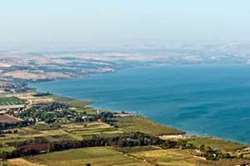
Upgrading the Economic System of the North
In mid-2014, SNI joined a venture with the Ministry of Economic and Industrie, aimed at drafting a plan for substantial improvement of the economic status of the North. During 2015, the project was completed and a summary report, which includes an analysis of the socioeconomic situation in the north, and recommendations to realize change-generating infrastructure anchors and non-linear growth generators, was submitted to the Government.

Grand Strategy For Israel
The Overarching Strategy Forum was established at the initiative of the former national security adviser to the Prime Minister and the head of the National Security Council, Prof. Uzi Arad.
_20190307162102.596.jpg?w=250&quality=60)
IDF’s Conscription Model: Examining Alternatives and Innovations
Our goal is to organize a Roundtable discussion, whose participants have expertise, knowledge and opinions on all aspects of military conscription – social, political, military, strategic, economic and psychological. In the Roundtable, a wide variety of opinions and positions will be expressed, on I.D.F. conscription and the volunteer army; innovations in this area will be discussed and various alternative policies will be presented. The Roundtable will provide informative useful material for a planned one-day Workshop conference, at which decision-makers and opinion leaders will participate. The S. Neaman Institute will prepare and distribute a report, at the conclusion of the Workshop.
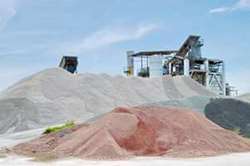
Empowering the Classical Industry
2016 was characterized by the promotion of the outline proposed by the Committee to Empower Classical Industry, expanding it into other areas, such as education, promoting technological-vocational education